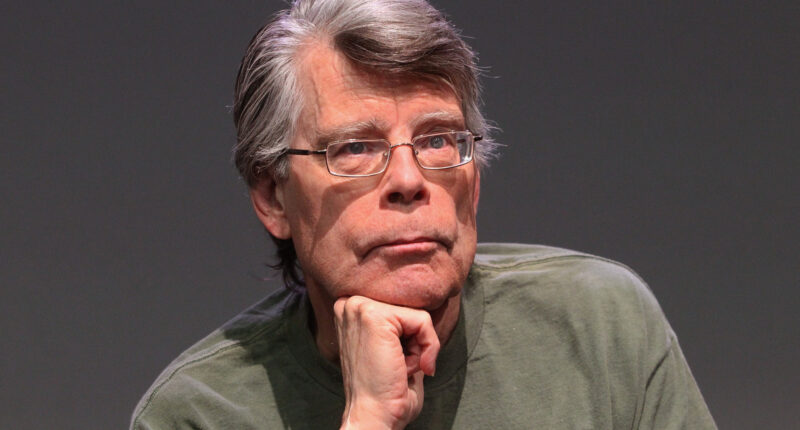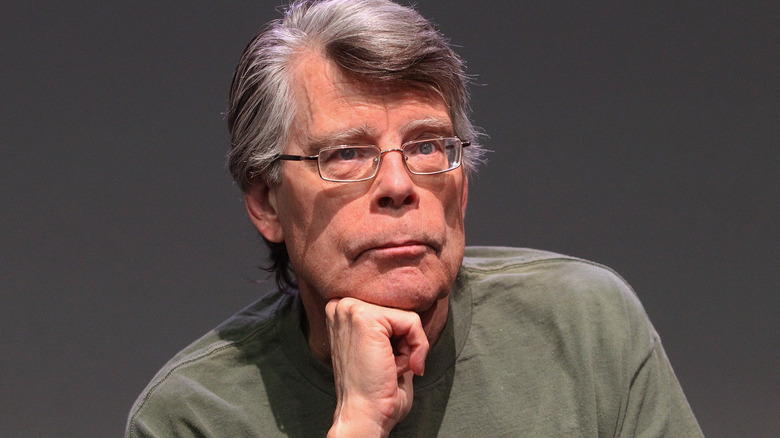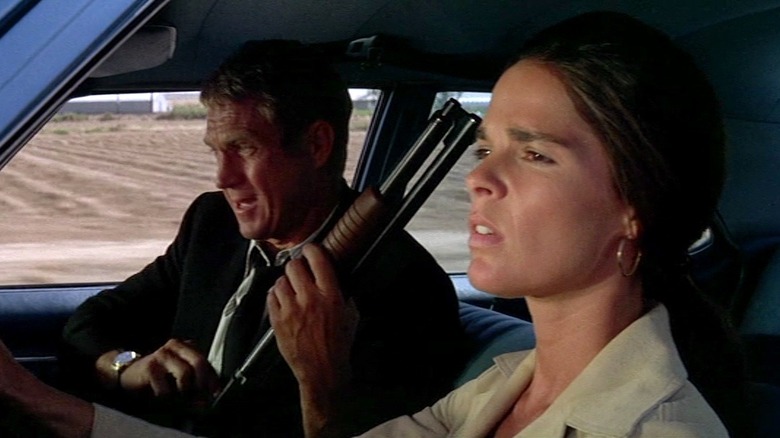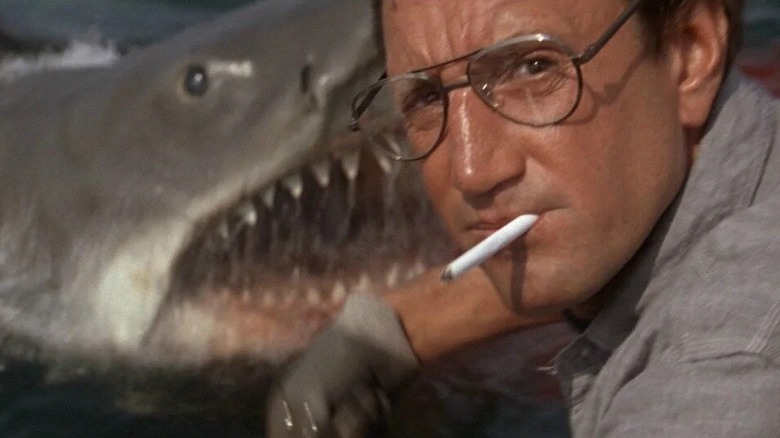Share this @internewscast.com
Stephen King, the celebrated author known for shaping pop culture with iconic works like “The Shining” and “It,” has left an indelible mark on both literature and film. His stories have been adapted into classic movies and popular TV series, underscoring the reciprocal influence between King’s writings and the broader world of entertainment. For instance, his vampire epic “‘Salem’s Lot” was inspired by a blend of “Peyton Place” and “Dracula,” while “Rita Hayworth and Shawshank Redemption” cleverly weaves in a plot element centered on a poster of the famous actress.
Delighting fans with a glimpse into his cinematic tastes, King recently revealed his top ten favorite films—excluding adaptations of his own work—on his social media account. According to King, these films, listed in no particular order, include “Sorcerer,” “The Godfather Part II,” “The Getaway,” “Groundhog Day,” “Casablanca,” “The Treasure of the Sierra Madre,” “Jaws,” “Mean Streets,” “Close Encounters of the Third Kind,” and “Double Indemnity.” Notably, six of these selections hail from the 1970s, a decade that evidently holds a special place in his heart.
For King, the 1970s marked a pivotal era, as it was during this time that he published his debut novel, “Carrie,” in 1974. Before the decade closed, he had also released influential works such as “The Stand” and “The Long Walk,” the latter under his pseudonym Richard Bachman. This selection of 1970s films not only highlights their cinematic significance but also offers insights into the elements that resonate with King himself.
The films King cherishes are a diverse mix of genres, ranging from science fiction to comedy and noir, yet a pattern emerges among his 1970s picks: a keen appreciation for thrillers.
The 1970s were a golden age for thrillers, fueled by the collapse of the Hays Code and the traditional Hollywood studio system, which ushered in the New Hollywood era. This period allowed filmmakers to craft stories where outcomes were uncertain and not guaranteed to end on a high note. “Sorcerer,” directed by William Friedkin in 1977, exemplifies this era. The film masterfully builds tension as truck drivers in Central America navigate perilous roads, transporting unstable dynamite that could explode with the slightest jolt. King praised the film’s ability to “generate suspense through beautiful simplicity” in an article for Entertainment Weekly.
Stephen King loves dramatic thrillers
The 1970s also delved into the gritty underworld of crime, exploring the darker aspects of human nature with films like Sam Peckinpah’s “The Getaway.” This 1972 thriller follows a bank robber and his wife, played by Steve McQueen and Ali MacGraw, as they evade the law in a stylish and violent chase. Martin Scorsese’s “Mean Streets,” released in 1973, presents a raw depiction of the mafia’s brutal reality and marked the beginning of his fruitful collaboration with Robert De Niro. “The Godfather Part II,” from 1974, is a masterful continuation of the Corleone family’s saga, cementing its status as a cornerstone of 1970s cinema and arguably director Francis Ford Coppola’s crowning achievement.
Thriller films thrived in the 70s — the dissolution of the Hays Code and the Hollywood studio system led to the unabashed freedom of the New Hollywood movement. Now the good guys could lose and there was no guarantee of a happy ending. Such is the case with “Sorcerer,” William Friedkin’s 1977 nail-biter about truck drivers in Central America transporting unstable dynamite through dangerous terrain, where the slightest bump could blow them to smithereens. The film “generate[s] suspense through beautiful simplicity,” King once wrote in Entertainment Weekly.
The 1970s were eager to explore the criminal mind in all its cynical complexity and brutality. Sam Peckinpah’s “The Getaway” is a stylish and violent thriller from 1972 about a bank robber and his wife (Steve McQueen and Ali MacGraw) on the run from the law. “Mean Streets” is Martin Scorsese’s harrowing 1973 mafia neo-noir, his first collaboration with frequent leading man Robert De Niro and one of Looper’s 59 best crime films of all time. And 1974’s “The Godfather Part II” follows two generations of the Corleone crime family and their rise to power. It’s one of the best films of the 1970s and is arguably Francis Ford Coppola’s masterpiece.
Steven Spielberg directed two of King’s favorites
Steven Spielberg has the distinction of being the only filmmaker with two films featured in Stephen King’s top ten. The winner of three Academy Awards and the highest-grossing director in film history, Spielberg is — like King — one of the defining names of the 20th century, giving his double-appearance extra significance.
Spielberg’s “Jaws” follows a killer great white shark preying on the locals of Amity Island, and the three men (Roy Scheider, Richard Dreyfuss, and Robert Shaw) who join forces to destroy it. An enormous success that inspired three sequels, “Jaws” helped invent the modern day blockbuster and, interestingly, is the only film on King’s list that could be considered a horror. “Close Encounters of the Third Kind” is a more mysterious and awe-inspiring science fiction drama about two ordinary families that encounter UFOs, and it has joined the pantheon of the world’s greatest science fiction films.
Released in 1975 and 1977, respectively, “Jaws” and “Close Encounters” are tonally and spiritually very different films about mankind’s relationships with nature and the cosmos. But they both center on an American everyman (Brody in “Jaws” and Roy in “Close Encounters”) who brushes against something terrifying and unknown; sailing in shark-infested waters and greeting aliens from another planet. And whether it’s Ben Mears returning to his hometown of Salem’s Lot or Jack Torrance and his family arriving at the Overlook Hotel, that is a premise that Stephen King fans know all too well. It’s no wonder that “Jaws” and “Close Encounters” are two of his favorite films.











